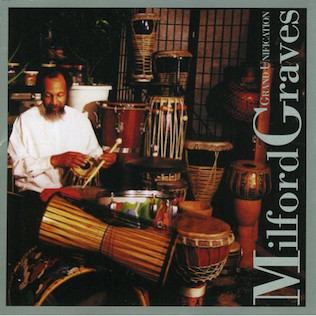
Bar Kokhba is a double album by John Zorn, recorded between 1994 and 1996. It features music from Zorn's Masada project, rearranged for small ensembles. It also features the original soundtrack from The Art of Remembrance – Simon Wiesenthal, a film by Hannah Heer and Werner Schmiedel (1994–95).

John Zorn is an American composer, conductor, saxophonist, arranger and producer who "deliberately resists category". His avant-garde and experimental approaches to composition and improvisation are inclusive of jazz, rock, hardcore, classical, contemporary, surf, metal, soundtrack, ambient, and world music. In 2013, Down Beat described Zorn as "one of our most important composers" and in 2020 Rolling Stone noted that "[alt]hough Zorn has operated almost entirely outside the mainstream, he's gradually asserted himself as one of the most influential musicians of our time".

Masada is a musical group with rotating personnel led by American saxophonist and composer John Zorn since the early 1990s.

The Book of Heads (1978), composed by John Zorn, is a set of 35 etudes for solo guitar. It was recorded and released in 1995, and featured Marc Ribot. The pieces use multiple extended techniques.

The Big Gundown is the third studio album by American composer and saxophonist/multi-instrumentalist John Zorn. It comprises radically reworked covers of tracks by the Italian film composer Ennio Morricone.

Mark Feldman is an American jazz violinist.

The Gift is an album by John Zorn released in 2001 on the Tzadik label as the third volume of his Music Romance Series and described as an album "for lovers only".

Kristallnacht is the seventh studio album by John Zorn first released in 1993 on the Japanese Eva label and subsequently in 1995 on Zorn's own Tzadik Records label.

Locus Solus is an album of improvisations by John Zorn and other musicians. Originally released as a double vinyl album on Rift records in 1983 it was re-released as a CD with additional tracks on Eva/Wave in 1990 and on Zorn's Tzadik Records label in 1997.

The Classic Guide to Strategy is a compilation album by John Zorn featuring his two early solo records The Classic Guide to Strategy Volume One (1983), (tracks 1-2) and the Classic Guide to Strategy Volume Two (1986), (tracks 3-8). The albums were first released on vinyl on Lumina Records in and later re-released on Tzadik Records in 1996 as a single CD. The second track is inspired by the work of Carl Stalling and tracks 3-8 are named after avant-garde Japanese artists. The Classic Guide to Strategy Volume Two also contained the track "Yano Akiko" (5:20) which does not appear on the CD re-release.

Ganryu Island is an collaborative album by John Zorn and Michihiro Sato. The album was first released on vinyl LP on Yukon Records in 1984 and later re-released on Tzadik Records as a CD with five additional tracks in 1998.

Filmworks VI: 1996 features three scores for film by John Zorn. The album was released on Zorn's own label, Tzadik Records, in 1996. It features the music that Zorn wrote and recorded for Anton, Mailman (1996), a short film directed by Dina Waxman that was never completed due to loss of funding in its final stages, Mechanics of the Brain (1996) directed by Henry Hills and The Black Glove (1996), which was directed by, and starred, Maria Beatty.

Live in Taipei is a double live album by John Zorn's Masada recorded at the Crown Theatre in Taiwan's capital city Taipei. The album is mistakenly dated 1995, while the performance was actually taken place in 1996.

Masada Anniversary Edition Vol. 4: Masada Recital is the fourth album in a series of five releases celebrating the 10th anniversary of John Zorn's Masada songbook project. It features 12 Masada songs performed by Sylvie Courvoisier on piano and Mark Feldman on violin. It was released in 2004 on Zorn's Tzadik Records as part of the Radical Jewish Culture Series.

50th Birthday Celebration Volume 2 is a live album of improvised music by Milford Graves and John Zorn documenting their performance at Tonic in September 2003 as part of Zorn's month-long 50th Birthday Celebration concert series.

50th Birthday Celebration Volume 10 is a live album of improvised music by Yamataka Eye and John Zorn documenting their performance at Tonic in September 2003 as part of John Zorn's month-long 50th Birthday Celebration concert series. Guitarist Fred Frith also appears on one track.

Nani Nani is an album of improvised music by American composer and saxophonist/multi-instrumentalist John Zorn and Yamataka Eye. A sequel album Naninani II was released in 2004.

The Watchman is a 1996 album by cellist Erik Friedlander which was released on the Tzadik label.

Grand Unification is an album by American percussionist Milford Graves, recorded in October 1997 and released in 1998 by Tzadik Records.

Blues for Falasha is a posthumously released album by saxophonist Glenn Spearman. It was recorded on June 8, 1997, at Bay Recording in Berkeley, California, and was released in 1999 by Tzadik Records as part of their Radical Jewish Culture series. On the album, Spearman is joined by saxophonist Larry Ochs, pianist Chris Brown, bassist Lisle Ellis, and percussionists Donald Robinson and William Winant.




















